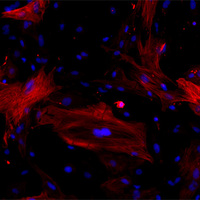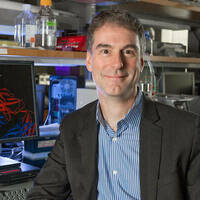
Biophysics, literally the physics of life, enables scientists working at the intersection of physics, biology, chemistry, and applied mathematics and statistics, to collaborate with clinicians, mathematicians and engineers to develop a predictive understanding of biological processes, including cancer, development, infection and the immune system. Novel tools and techniques now permit biophysicists to see and measure what was once invisible. Physics has long played a prominent role in biology – Watson, Crick and Franklin, discoverers of the structure of DNA, considered themselves biophysicists – but that role has increased dramatically in recent years as the development of new methods has transformed our understanding of biological systems, their complexity and their molecular details.
The University of Notre Dame has a rich history of molecular biophysics research across disciplines. The recent establishment of the Stavropoulos Center for Complex Quantum Matter will strengthen these efforts across campus, attracting elite research talent at all levels of career development.
News

Understudied cell in the brain could be key to treating glioblastoma
In a new study in NPJ Genomic Medicine, researchers at the University of Notre Dame have found that a largely understudied cell could offer new insight into how the aggressive, primary brain cancer is able to resist immunotherapy.
Read More about Understudied cell in the brain could be key to treating glioblastoma

Too much like us? Researchers uncover key reason a promising cancer therapy is often unsuccessful
Neoantigens, which are molecules found on tumor cells that incorporate mutations, help our immune system fight cancers and could be the most promising components of future cancer vaccines—if only scientists knew with a high degree of certainty which neoantigens work.
A collaboration of scientists…
Events
No upcoming events at this time.